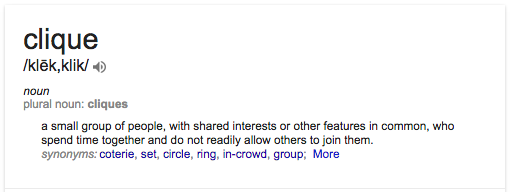by David Hanson | Nov 20, 2014 | The Youth Ministry Blog
Because I’m so excited to be at The National Youth Workers Convention this year, I thought I’d live blog the event to share what God is teaching me.
Session One: Mark Matlock
5 Reasons the Church Needs Youth Ministry:
1. Youth Ministry is vital to helping teens integrate into the larger intergenerational community of the church.
The church must look to intentionally integrate, target, and speak to the life of teenagers.
2. Youth Ministry resists the status quo, helping a church stay relevant in a changing culture.
Youth are always on the cutting edge. What is relevant to them needs to be relevant to the church because they are the direction we are headed!
3. Youth Ministry focuses on inviting those who are not already part of the church into the deeper narrative of God’s plan for humankind.
So many come to faith during teenage years, so we must be intentional.
4. Youth Ministry reminds the church that teens are not marginalized members of the body but are co-creators and conspirators in the divine work of the church, restoring life on earth as it is in heaven.
The church must understand that teens are a part of the body that cannot function as a body unless ALL the parts are looked after and utilized.
5. Youth Ministry helps the church focus on the way of Jesus, which goes beyond tradition, dogma, and ritual.
Unless someone is around asking why, then tradition will die. Students keep life in the body by questioning everything. In these times we can breath life into the teens and reveal the meaning and purpose behind our liturgy.
by David Hanson | Nov 17, 2014 | The Youth Ministry Blog, Youth Ministry Videos
I’ve come across so many good videos recently so I thought I would share some of them with you over the next few Mondays! Some of them are worship songs/videos, some of them are sermons or sermon jams you need to hear, and some of them are creative works that will get your synapses firing.
In our second addition of Video Monday, I want to share a video we used at a recent retreat before we entered a time of prayer and reflection. This video is great to help students understand the role that prayer plays in our relationship with God. It also ends with the words “let us pray.” So think about using it next time you are preparing to transition into prayer and reflection.
Just take a watch. Be encouraged.
Have a great Monday!

[guestpost]
David Hanson: Texas native, Texas Tech Red Raider, M.Div. at Truett Seminary, husband to Ashley, father to Ava & Ben, Student Pastor at LifePoint Church in Plano, Tx, table tennis (ping-pong) extraordinaire, addicted to coffee. For anything else…you’ll just have to ask.
[/guestpost]
by David Hanson | Nov 11, 2014 | The Youth Ministry Blog
During my time in Youth Ministry I have seen leader trainings done many different ways. In different seasons of ministry, and for different events, different styles of training are necessary.
Furthermore, I have discovered that sticking to one style of training while excluding others is detrimental to the growth of the leaders in your ministry. So as you read about the different ways you can train leaders, pray about how you will implement them in your ministry.
3 Ways to Train Leaders:
1. Large Group Trainings
Large Group Trainings are best way to cast a consistent message to the masses. In addition, large group trainings stir camaraderie among the volunteers in your ministry. There’s just something special about having your whole volunteer base together to think, dream, and pray in the same direction! But here’s the kicker: What you provide better be good. The worst thing in the world is a long, boring, low quality group training where leaders are wondering why they stuck around after church when they could be at lunch or on the couch watching football!
Pros:
- Same vision cast to a large group
- Time efficient.
- Camaraderie.
Cons:
- Content better be high quality and engaging.
- Hard to get 100% attendance.
- Not overly relational.
2. Small Group Trainings
I love Small Group Trainings! Our Small Groups are divided by grades and we recently moved away from large group trainings for our small group leaders and moved toward…wait for it…small group trainings for small group leaders! Poof! (That was your mind.)
Small group trainings allow for great content to be distributed with a personal touch. Not only can you make sure that all your leaders understand the direction and vision of the ministry, but you can get specific on how everything applies to the ministry/group they lead.
Pros:
- Vision and instruction cast directly.
- Mission can be localized to specific groups.
- You can hear back from your leaders directly.
Cons:
- Multiple meetings over multiple weeks to reach everyone.
- Vision must be cast over time rather than instantly.
3. One-on-One Trainings
These are by far my favorite! There is nothing more fulfilling than meeting with one of your leaders, having a heart-to-heart, pouring into them, and having them pour into you. The depth of conversation and connection that happen when you meet with each of your leaders cannot be replicated in larger gatherings!
Pros:
- Deep conversation & deep connection.
- Relationship builders.
- Personal & ministry development.
Cons:
- Takes FOREVER in larger ministries.
- Calendar nightmare.
Final Thoughts:
How are you training your leaders? What’s working for you? How are you implementing each of these types of trainings? The goal of this post was not to reveal something new and groundbreaking, but rather to get you thinking about how intentional you are with your leader trainings.
I’d love to hear what’s working for you! Comment below!
[guestpost]
David Hanson: Texas native, Texas Tech Red Raider, M.Div. at Truett Seminary, husband to Ashley, father to Ava & Ben, Student Pastor at LifePoint Church in Plano, Tx, table tennis (ping-pong) extraordinaire, addicted to coffee. For anything else…you’ll just have to ask.
[/guestpost]
by David Hanson | Nov 10, 2014 | The Youth Ministry Blog, Youth Ministry Videos
I’ve come across so many good videos recently so I thought I would share some of them with you over the next few Mondays! Some of them are worship songs/videos, some of them are sermons or sermon jams you need to hear, and some of them are creative works that will get your synapses firing.
The first video I want to share with you is a worship song I can’t get out of my head! What I love about this song is that it speaks to God’s identity as our Heavenly Father and our identity as a Child of God. It’s called “Good Good Father” by Housefires II.
Watch. Listen. Think. Worship.
Have a great Monday!

[guestpost]
David Hanson: Texas native, Texas Tech Red Raider, M.Div. at Truett Seminary, husband to Ashley, father to Ava & Ben, Student Pastor at LifePoint Church in Plano, Tx, table tennis (ping-pong) extraordinaire, addicted to coffee. For anything else…you’ll just have to ask.
[/guestpost]
by David Hanson | Oct 31, 2014 | Uncategorized
David Hanson wrote a fantastic rant post, “5 Things Youth Pastors Need to Stop”. Hopefully, you have stopped doing those 5 things by now but if not, there is still time. And if you have stopped those things or are planning to stop, here are 5 things Youth Pastors need to start!
1. Start Communicating the GOSPEL Dynamically
Entertainment can’t be the KING of your youth ministry and yet sadly it is for many churches. The KING has a throne and the KING’s name is Jesus. He needs to be the MAIN focus; the biblical story, his story, the gospel needs to be presented at every gathering or you’ve missed an important opportunity.
However, if you are going to push the gospel you need to learn to communicate it in a way that is engaging and dynamic. Primarily, because the gospel IS engaging and dynamic! So when you bore it all up, create a slumber party in your sermon, and cause people to leave scratching their head saying, “What?!” – it’s time to adjust the way you present the most life-changing, exciting news of ALL-TIME! If you don’t know how or where to start on that, stayed tuned for a followup post to this point.
2. Start Making it About Fruitfulness
Numbers can’t be your focus. When numbers are the focus, you lose sight on what Jesus thought was important. Jesus wasn’t anti-crowd or anti-big groups, however, he did push crowds away if they didn’t seem to get it. (John 6:60-66) Through Jesus’ teachings we learn that his primary goal was not MORE butts in seats but those that are growing the right fruit.
If God has entrusted you with 10 teens, disciple them so they are bearing good fruit! And they will then begin to disciple others. If God has entrusted your ministry with a 1,000 teens then find ways to make sure they are bearing good fruit so they also begin to share it with others! Both are HUGE tasks that need lots of prayer and all of the Holy Spirit.
3. Start Being You
If slang, trendy clothes, and knowing the lyrics to a Taylor Swift song is you. BE YOU and the teens will love it even if they pretend to hate it. If wearing New Balance shoes, cargo shorts, and saying things like “Aw Shucks!” is you, then BE YOU.
Don’t try to be a teen, cause you aren’t one. Don’t try to be considered “cool” by them because that actually will stunt their spiritual growth. What they really need is a Youth Pastor that is confident in who God has them to be! That’s what they want to become! I’ve seen very effective Youth Pastors on both ends of the “cool” spectrum but the defining quality was they were themselves, they weren’t faking it. Just be you, and lead your teens.
4. Start Creating a Long-Term Plan
You simply can’t allow anymore throw-away nights. Off-nights? Maybe. But don’t throw-away anymore nights. Create a plan for your gatherings and a goal/vision behind the gatherings! Pray that God gives you vision for these students for the six years (academics pending) you get to invest in their lives.
5. Start Implementing Healthy Margins In Your Life
Margins are what allow you to do youth ministry or any ministry for more than a few years. Burnout is real and you can’t do everything. Maybe this is a reminder to say “No” to a few things and “Yes” to a few days off. The reality is, inside ministry there is always something else that you can do so it’s important to find healthy margins.
[guestpost]
Mark Knight is a Children’s and Youth Pastor in Tacoma, WA. He leads a team of directors that cover ministry from birth through young adults. He graduated from Northwest University with a double-major in Youth Ministry and Biblical Studies. Mark is married to his amazing wife, Lindsay, and they are expecting their first child in December.
[/guestpost]
by David Hanson | Oct 30, 2014 | Uncategorized
After ranting about 5 Things That Youth Pastors Need to Stop, I figured I should flip the script. So if you are a youth pastor, and your not doing the following…you need to start!
Below you will find five things that Youth Pastors Need to Start:
1. Start Engaging Parents.
Everyone who is doing research (i.e. Sticky Faith, Orange) related to youth ministry is pushing parental engagement and parent ministry. All of these studies are show that parents play the most significant role in the spiritual development of teens. Why fight upstream, trying to influence students on your own in 4 hours a week, when you could tap into the number one influence in the life of a teen?
2. Start Student Follow-up.
I know this seems like a no-brainer, but I’ve been shocked how poorly follow-up happens in youth ministry (I’m guilty)! And when I say “follow-up,” I’m not just talking about first-time visitors. Follow-up needs to happen with first-timers, students who make decisions concerning salvation or baptism, and students with serious prayer requests.
3. Start Planning Ahead.
Student Ministry has a bad reputation when it comes to both planning ahead and communicating to students and parents what’s happening in the near future. If you want the ministry you lead to be taken seriously, you need to show that you are not flying by the seat of your pants. Communicating regularly with parents about upcoming events, as well as the purpose behind these events, help build trust and rapport with parents. I plan out my teaching series for an entire year, and communicate major events quarterly. Find a schedule that works for you and stick to it!
4. Start Handing Over Ministry to Students
A temptation for Youth Pastors is to do everything themselves. You have probably experienced this! Do I let a student do the announcements or do I do them and make sure they get communicated clearly? Do I teach the lesson or do I let a student fumble though one? Do I tell students to invite friends to church so I can share the gospel or do I equip my students to go out and share the gospel?
I doubt any of you would admit to having these doubts, but don’t lie to yourself! We have ALL felt this way. But we must continually find ways to transfer ownership of the student ministry to students!
5. Start Reading.
We should all desire to be lifelong learners. The minute you think you have it all “figured out” will be the minute God throws a curveball your way. Any veteran pastor will attest that every year in ministry presents an new opportunity for growth and development. How are you actively studying and growing in your craft?
Need a place to start? Here are a few books I’ve read recently that got me thinking:
1. Middle School Ministry by Mark Oestreicher
2. Recovering Redemption by Matt Chandler
3. Center Church by Timothy Keller
Thanks for reading! What else do Youth Pastors need to Start? Comment below!
[guestpost]
David Hanson: Texas native, Texas Tech Red Raider, M.Div. at Truett Seminary, husband to Ashley, father to Ava & Ben, Student Pastor at LifePoint Church in Plano, Tx, table tennis (ping-pong) extraordinaire, addicted to coffee. For anything else…you’ll just have to ask.
[/guestpost]
by David Hanson | Oct 23, 2014 | The Youth Ministry Blog
Disclaimer: What you are about to experience is a rant post. So if you are a youth pastor, I may, or may not, be talking directly to you.
The more time I spend in youth ministry, the more I get frustrated with the quarks of youth ministry. Below you will find five things that youth pastors need to stop.
1. Stop pushing entertainment over the gospel.
I get it. You want kids to show up, so you advertise and program around things that students would be interested in (i.e. dodgeball, all-nighters, give-aways), but what happened to the preeminence of Christ? That word “preeminent” means supreme, of utmost importance, marquee, chief, or most excellent. When you sit before the throne of God, what will matter more? How you lifted up His name or how great your all-nighters went? Which leads me to my second point…
2. Stop making it about the numbers.
I’ve heard the lines: “God cares about people, if people are numbers we’re counting, I should care about numbers.” Stop! I’ve been there. It’s hard not to associate growth and spiritual progression with numbers. But once again, is God more concerned with the breadth of your flock or the dedication and faithfulness of your flock?
3. Stop dressing like a teenager.
Time for comic relief. If you dress like your students and are double their age…something is wrong…very wrong. Be yourself. Stop trying to be “like” them and start leading them! Every youth conference I attend…the more disappointed I get in the fashion choices of youth pastors!
4. Stop leaving so quickly.
I once heard that the average stay for a youth pastor was 18 months. If that is actually true…shame on us! Very little is accomplished in 18 months. I am going on 3.5 years in my position and feel like I am just scratching the surface of what God wants to do through me in this community. Stick around.
5. Stop neglecting your family.
While investing your time and energy into a community is important, don’t sacrifice your family on the alter of “ministerial success.” It will not benefit you in the long run. Here is the reality: Every other ministry of the church has the summer “off”…except youth ministry. So when is your down season? When do you pull back the throttle to refresh, rejuvenate, refill the tank, and focus on the family you have seldomly seen throughout the summer? My suggestion: scale back in December.
What else do youth pastors need to stop doing? Comment below!
[guestpost]
David Hanson: Texas native, Texas Tech Red Raider, M.Div. at Truett Seminary, husband to Ashley, father to Ava & Ben, Student Pastor at LifePoint Church in Plano, Tx, table tennis (ping-pong) extraordinaire, addicted to coffee. For anything else…you’ll just have to ask.
[/guestpost]
by David Hanson | Oct 22, 2014 | The Youth Ministry Blog
Over the past two months I have been a part of three retreats. I was the speaker for two of these retreats and hosted the other for my students. Two of the fall retreats had what I’m calling a “secret sauce” and the third (the one I hosted) did not.
So what is this secret sauce?
Free Time.
Whoa. Whoa. Settle down. I didn’t mean to blow your mind with this ground breaking concept!
But on the real, I was truly convicted about the way I structure a retreat. Our students are over-scheduled, over-worked, sleep deprived, and stressed. One of the youth pastors I spoke for told me he had a student who had to go see a doctor for stress related twitches.
Between tutoring, classes, athletic/musical/artistic practice, club meetings, chores, family time, and homework, our students have little to no downtime.
As youth pastors planning retreats and getaways, we have the opportunity to help students detach from chaotic weekly schedules and experience the beauty and serenity of free time. At my most recent retreat not only was there free time for the students to shoot hoops, play gaga ball, hike, or canoe, but there was a half hour of planned prayer and solitude.
When planning a retreat, it can be tempting to fill the schedule. In fact, if you are like me, you feel PRESSURED to fill the schedule! After all, these students/parents are paying good money for their kids to attend an event, so we better deliver with high quality, entertaining activities…right? Not so much…
The best thing that many of us can do is balance high quality programming with intentional free/down time. When we mark out intentional free time or planned prayer and solitude, we help our students understand what it means to Sabbath…a concept lost to football, homework, and projects.
What are your thoughts? Have you had success with intentional free time? Have you felt pressured to fill retreat schedules? Comment below!
[guestpost]
David Hanson: Texas native, Texas Tech Red Raider, M.Div. at Truett Seminary, husband to Ashley, father to Ava & Ben, Student Pastor at LifePoint Church in Plano, Tx, table tennis (ping-pong) extraordinaire, addicted to coffee. For anything else…you’ll just have to ask.
[/guestpost]
by David Hanson | Oct 6, 2014 | The Youth Ministry Blog
If you serve in any capacity in student ministry, you understand that students say funny things. You also know that adults say funny things. I thought I’d share some of the top things people have said to me over the past 10 years of being a student pastor.
-
“What other job do you have besides being a student pastor?”
Student ministry is a multifaceted job. You have to learn how to plan events, write sermons, develop leaders, help parents in crisis, counsel students, edit videos, create graphics, update websites, plan events and more. It is a random ministry position that includes a lot of fun and creativity! But most people do not understand it.
-
“When will you become a real pastor?”
I heard a friend of mine say that once he knew a guy that was a youth pastor. He was amazed at how fast he became wise, in one day, when he accepted a senior pastor role. All of a sudden people listened to what he said and wanted his advice on everything. Student pastors are pastors. A lot of what we do is shepherding students and their families.
-
“I am amazed that someone would WANT to spend time with students!”
People don’t know how encouraged I am by students and their desire to serve God. I believe that students ARE the church, not just the future of the church. The energy and openness to God is what makes student ministry special to me.
-
“My child doesn’t want to come to church, can you get them to come?”
Usually the student can tell that even the parents don’t want to be at church. What you see in a student’s life mirrors what happens in the home, especially their attitudes. Parents are the biggest influences in the lives of their students. I usually talk to the parent about how to influence their child to see God working in their life.
-
“If we can keep the kids busy, we will keep them out of trouble”
Busyness doesn’t help students. Focused discipleship helps students grow alongside relationships with others. Busy calendars alone, as the focus, usually can lead to distracted people.
If you are in student ministry, I’m sure you can add to the list! We have an opportunity to invest and influence this generation. As hard as it can be at times, we focus upon the spiritual investment of the gospel into their lives.
People will always say positive and negative things about student ministry. The enemy hates that you are investing in this generation! Stay focused upon why you are doing what you are doing. Live for an audience of One as we all seek to hear the words, “well done, good and faithful servant.”
[guestpost]
Josh is the student pastor at Church @ The Springs in Ocala, Florida (www.thesprings.net). Josh has served in student ministry for 9+ years and has a passion to lead students to imitate Christ and influence the world! He has a personal blog at http://joshrobinson.cc
[/guestpost]

by David Hanson | Sep 29, 2014 | The Youth Ministry Blog
If you’ve spent any time in youth ministry, then you’ve exhaustively encouraged students not to form cliques. It usually comes in the form of: “Let’s be sure to include everyone!” or “Make sure you don’t leave anybody out!” or “This weekend everyone is your BFF!”
But apart from “Love your neighbor as yourself” (Matt. 22:39), have we ever explained to students WHY we use these cheesy one-liners to encourage inclusivity?
Try this one on for size:
2 My brothers, show no partiality as you hold the faith in our Lord Jesus Christ, the Lord of glory. 2 For if a man wearing a gold ring and fine clothing comes into your assembly, and a poor man in shabby clothing also comes in, 3 and if you pay attention to the one who wears the fine clothing and say, “You sit here in a good place,” while you say to the poor man, “You stand over there,” or, “Sit down at my feet,” 4 have you not then made distinctions among yourselves and become judges with evil thoughts?
8 If you really fulfill the royal law according to the Scripture, “You shall love your neighbor as yourself,” you are doing well. 9 But if you show partiality, you are committing sin and are convicted by the law as transgressors. -Matthew 2:2-4 & 8-9
Cliques are Sinful
I would bet that most students have no clue that their “cold shoulder” is an act of sin. Furthermore, most students have no concept of sins of omission.
Sins of Commission – knowingly doing something wrong.
Sins of Omission – Not doing what you know you should do.
If James were talking to a group of students today, he might say:
“My brothers, show no favor as you follow Jesus, the Lord of Glory. For if a cool kid wearing the latest clothes with the nicest car is walking down the hall, and the stinky annoying kid who nobody likes is also walking down the hall, and you pay attention to the cool kid, have you not shown favor to cool kids?…If you show favor to people you like over people who you deem “unimportant,” you are committing sin.”
Our emphasis on inclusion is not merely an attempt to foster community, it’s a battle against sin.
How do you help foster community and fight against exclusivity? Comment below!
[guestpost]
David Hanson: Texas native, Texas Tech Red Raider, M.Div. at Truett Seminary, husband to Ashley, father to Ava & Ben, Student Pastor at LifePoint Church in Plano, Tx, table tennis (ping-pong) extraordinaire, addicted to coffee. For anything else…you’ll just have to ask.
[/guestpost]




